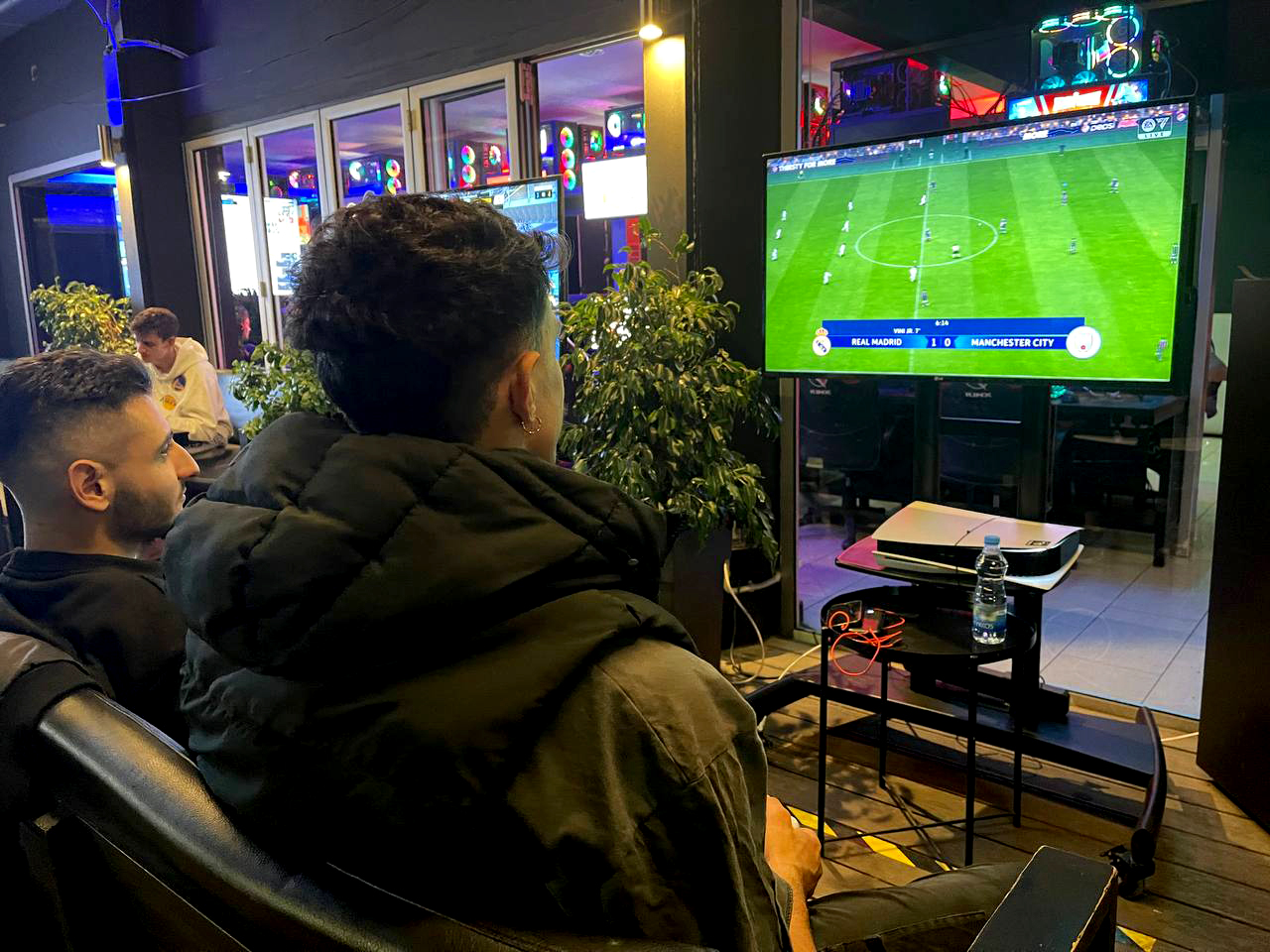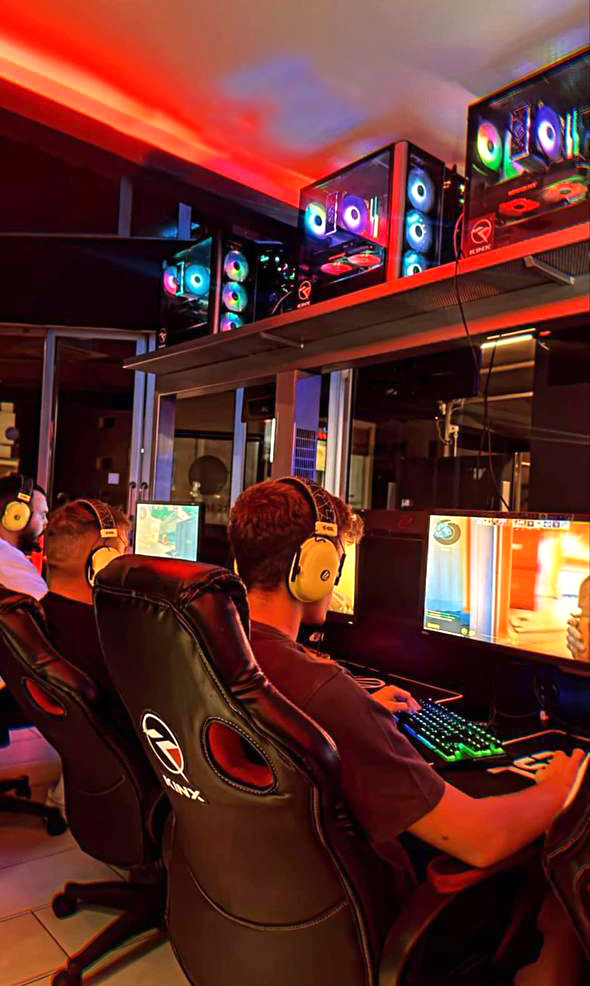Substantial sponsorship needed for it to really thrive
The esports scene in Cyprus has evolved considerably in recent years, gaining traction and recognition, thanks primarily to a few dedicated people around the island with gaming in their hearts.
One of them, widely considered to be the father of esports in Cyprus, is Lambros Myriantheas, CEO of Kinx Esports Arena in Nicosia.
Talking to the Sunday Mail, Myriantheas said that, despite growing interest, competitive esports in Cyprus have not reached the levels of its global counterparts.
He pointed out that outdated hardware has hampered the competitive potential of Cypriot gamers, especially for popular games like League of Legends, Counter-Strike and Fifa (now EAFC).
“The scene we have here simply doesn’t compare, making it harder for our players to match global skill levels,” he said, adding that access to high-level competitions remains difficult as well.
“Top teams abroad are practically pre-qualified for major tournaments and have substantial sponsorship backing,” he explained. “To seriously compete, we would need millions in support.”
Sponsorships are, in fact, essential for the survival of Cypriot esports teams.
“Without sponsorships, teams cannot survive, it’s their primary source of income,” Myrantheas continued.
“I had been working towards securing support since long before Covid-19, but the pandemic shifted most activity online, where sustaining competitive play is harder without a robust framework.”
After Covid, casual gaming skyrocketed, with nearly half of the world now engaging with video games, primarily on mobile phones.

“We’re talking about over three billion people playing worldwide,” Myrantheas said, adding that the surge, nevertheless, pushed many players towards casual gaming rather than competitive esports, making the path forward for Cyprus’ esports scene both promising and complex.
On a global stage, the potential inclusion of esports in the Olympic Games has been a topic of discussion for years now.
Back in July, the International Olympic Committee (IOC) decided to create the Olympic Esports Games. The first edition will be held in 2025 in Saudi Arabia.
“This is truly a new era for the world,” IOC president Thomas Bach said. “With the confirmation by the IOC Session of the creation of the Olympic Esports Games, we are keeping up with the pace of the digital revolution.
“The esports community has enthusiastically engaged with this initiative. This is further proof of the attractiveness of the Olympic brand and the values it stands for among young people.”
Despite Bach’s enthusiasm, the lack of traditional esports titles in the Olympic Esports Series, and the inclusion of lesser-known games representing traditional Olympic sports, has been the subject of criticism.
Bach made it clear that, in terms of shooter games, which are some of the most popular in the esports world, such as Counter-Strike, Valorant and Apex Legends, “the IOC’s values are and remain the red line that we will never cross”.
“It’s done anyway. They [the IOC] approved it,” Myrantheas said, adding, however, that the Olympic Committee’s approach to esports may not be as straightforward as it seems.
“The games they included in the Olympic Esports Series are not esport as such,” he said. “They’re just games, just casual games, definitely not so important on the esports scene,” he explained.
“The games included in the Olympic programme are some mobile games, chess, Gran Turismo [a driving simulation game] and Fortnite. As an expert of esports, I can tell you that the Olympic Esports Series will not be that interesting,” Myrantheas said, adding that the unwillingness to include games that Bach deemed unfit to represent the Olympic spirit will ultimately turn away gamers.
He added that some major game developers are unwilling to involve their games in the Olympics, as this would mean ceding control and potentially losing sponsorship revenue.
“Developers of games like Counter-Strike and League of Legends prefer running their own tournaments to protect their sponsorships. Being excluded from the Olympics might actually benefit them,” he said.
More in general, Myriantheas is sceptical about organisations or governments attempting to be involved in esports. He shared an anecdote about a failed attempt by the Cyprus Football Association to organise a Fifa tournament with football teams in Cyprus.
“I told them it’s impossible,” he said. “You can do the tournament, but you cannot get people interested.
“You can get some sponsors for one or two years, but the result would be zero, because nobody is interested in watching a simulated Apoel against Omonia on a television screen.”
Despite the challenges, Myriantheas is optimistic about the future of esports in Cyprus.

“The gaming scene develops quickly. I’m currently working on a gaming show, the second one of its kind in Cyprus, which will take place next year.
“Additionally, I oversee all gaming events associated with Red Bull in Cyprus. Last year, we organised the League of Legends 1v1 tournament, an international event. The winner from Cyprus received an all-expenses-paid trip to New York to compete against players from 65 other countries in the finals,” Myrantheas said.
As the esports landscape in Cyprus continues to evolve, the industry faces both opportunities and obstacles.
With ongoing support from sponsors and committed advocates like Myriantheas, the island’s competitive gaming community has the potential to carve a path toward greater recognition on the global stage.


